
7K
Downloads
40
Episodes
Jeremy has always had a passion for developing primary pedagogy to improve children’s learning. As a trainee he was told “The children love being taught by you, now make sure they all learn something!” So began his quest for excellence. Since that day he has been judged by Ofsted to be an outstanding teacher and an inspirational school leader. He has been Commended in the Headteacher of the Year Awards and he is a Fellow of the Chartered College of Teaching. On his journey he has been helped by numerous outstanding teachers and this podcast is a way of helping teachers learn from the wisdom of others, just as he did.
Episodes
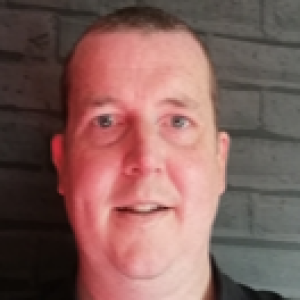
Thursday Aug 03, 2023
Changing Perceptions with Graham Chatterley
Thursday Aug 03, 2023
Thursday Aug 03, 2023
You know those moments when suddenly everything makes sense? That was the feeling I had when I read Graham's new book 'Changing Perceptions'. Why? Because the book unpicks challenging behaviour. Not only what causes it and motivates it, but how best to respond in a difficult situation whatever the problem is. When I was a teacher and headteacher I did lots of things instinctively, as there was little research into how the human brain works. Graham's book has enabled me to understand why the approaches I developed during my career often worked much better than the more authoritarian teacher approach I started with. It is the first book I have read that truly demystifies the complex business of working with children. It explains how we must teach children how to behave so that they can get the most from their learning and we can get the most from your teaching. This is a must listen!
In this podcast we discuss ...
- The 2 key components we need for young children to achieve to their potential in school - love and safety.
- Children must feel safe in order to access their thinking brain - they won't learn successfully if they can't do this.
- Love is essential - children must know they are loved.
- The importance of nurturing children at the start of school ... and after break ... and after lunch. This gets them in the right mental space to learn.
- What do most parents want for their children? To be emotionally and physically safe. This is not always a school's priority as academic progress, tests and league tables often come first. But it should be at the top of the list if schools are to achieve the highest standards possible.
- The 'catch up' narrative post Covid is troublesome. How does doing more English and Maths help if children's brains aren't in the right place to learn. Its like trying to fill a cup with the lid on. Nothing goes in; it just pours all over the floor.
- Pressure for academic progress is misplaced until children's brains are ready to process learning.
- Ask a group of people, 'What do you fight fire with?' They will often reply, 'Fire!' But then you've got more fire haven't you? Is that the best way to manage an angry child?
- Is the authority teacher figure important? Essential?
- The importance of not ignoring low level behaviour for those children who present challenging behaviour. This could lead to a crisis.
- Most children can self-regulate but those who can't do this must be co-regulated by an adult. But can all adults self-regulate?
- The thinking part of the brain is often under-developed in children with the most challenging behaviour. We must recognise this when a child is in crisis.
- When a child is in crisis they can't process language. Therefore the use of appropriate body language is essential. Think what you do with a crying baby - be calm, soothe, smile.
- Do angry, abusive, awkward children also need soothing? Yes they do!
All this and more in this podcast. You won't regret listening.
Changing Perceptions by Graham Chatterley - Crown House Publishing - ISBN: 978-178583675-6

Wednesday Jul 20, 2022
What I wish I knew with Marna Earle
Wednesday Jul 20, 2022
Wednesday Jul 20, 2022
For the last episode of the school year I am speaking to the most enthusiastic teacher (no, that should be the most enthusiastic person), I have ever met. Marna is an absolute breath of fresh air, and by golly we need that now with the current heatwave making us weary at the end of a long term. She said her mum taught her as a little girl to 'Choose joy' and she is the very embodiment of that approach to life. So, if you need a pick me up, listen to Marna; her enthusiasm is infectious.
In this podcast we discuss ...
- How positive, smiling people make a real difference to people's lives. Saying hello and reaching out to people creates a great working environment.
- Why adults should look like they are having fun as it gives children a reason to want to grow up.
- The importance of looking for awe and wonder and joy in everyday life. It's good for you and it's good for everyone you share it with.
- Why you should never give up on what you want to do. Ever! Even when it looks like the way ahead is blocked, there is always a path that will lead you to where you want to go. It's never too late to do something. Remember, the price of success is a lot less than the price of regret.
- The importance of being teachable if you are a teacher because only then can we reach our full potential. To continually improve is not because you are not good enough, but because being better at what you do benefits you as much as those you work with and it feels good.
- How authentic praise for children and adults can impact on everything they do. Celebrate genuine achievements, however small.
- Why you must find time to do your work, but also find quality time for yourself and your family. It's not selfish because having time for your life outside school will make you a better teacher.
- The fact that all teachers can make a significant difference to the lives of the children they teach. Remember, 'If you can't do great things, do small things in a great way.' That is more than good enough.
- The reason why metacognition is so powerful for teachers and pupils, even though it wasn't called that when Jeremy started teaching!
- Why caring matters so much. If children know you really do care then teachers can demand extraordinary things from them and they will achieve more than they ever thought possible.
- The value of becoming a truly reflective teacher cannot be overestimated. What can I improve? What can I be really proud of? Everything matters, but make sure you always focus on the things you should be proud of as well the aspects you want to get better at.
- Make sure you spend time finding out what each child needs to be a great learner in your class so they can be as good as they can be. Don't let rules or conventions get in the way of doing the right thing.
Have a great summer break everyone (well everyone who has now got a few weeks off school) and I'll be back chatting again in September. I hope you can join me!
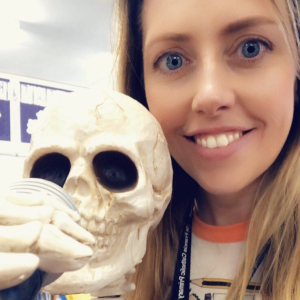
Wednesday Jul 13, 2022
What I wish I knew with Jane Clapp
Wednesday Jul 13, 2022
Wednesday Jul 13, 2022
Jane Clapp has to be one of the most perceptive teachers I have ever spoken to. She has the ability to cut through all the chaff that litters education, all the fads, all the pointless ideas that add little to the quality of a child's experience at school. Listening to Jane is truly inspiring; she just gets what great education is about. She has so many thoughts about how to create a wonderful learning environment that I know she will be coming back another day as we only scratched the surface of what makes her such a good teacher.
In this podcast we discuss ...
- How tiring the end of the summer term can be, but how being inspired by the children is the thing that keeps you crawling to the finish line.
- The importance of the teacher believing that every child can learn successfully. If you don't believe, they won't.
- Asking children to do scary things is fine, as long as you have provided a truly safe classroom environment for them.
- Why children struggle when adults are inconsistent. All children can flourish when they know what is expected of them.
- The importance of having an authentic positive relationship with your class.
- How appropriate routines are essential to create high expectations. So you have to pick what is most important for you and set up routines that children understand. Tell them what you expect, rehearse it endlessly and keep going until they meet it. Don't lower the bar ... ever!
- The fact that rehearsal leads to fluency, so make sure you do this enough for everything!
- How contextual learning makes activities more meaningful to children, but each new context may need revision of key learning. Meaningful contexts provide a real purpose for learning that children enjoy.
- The need to keep learning in each lesson clear. It's easy to overcomplicate teaching, so focus on the building blocks that are essential for each lesson and go deeper rather than endlessly extending tasks. Overcomplicating is rarely beneficial to teachers or pupils.
- Why the tick box approach to writing (such as the endless list of success criteria) actually diminishes the quality of children's work. It can be so exciting for all children to write when they are inspired; sometimes our teaching approach takes away this joy and removes the life from the children's words.
- How using the National Curriculum helps to make learning more straightforward. Activities often morph into to something quite different that children can't understand (studying phases of the moon is one of these).
- The most important thing is to enjoy your class. Don't get het up by all the things you have to do, as some are not of any value. Enjoying your teaching is always important, as is keeping your teaching simple and practising your routines over and over again.
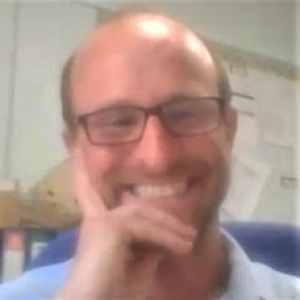
Wednesday Jul 06, 2022
What I wish I knew with Paul Sully
Wednesday Jul 06, 2022
Wednesday Jul 06, 2022
Paul Sully is an exceptional headteacher, who really understands learning and how to develop a school community so that everyone is focused on ensuring the children have the very best education it is possible to have. After his school's second successive Outstanding Ofsted judgement (even though the HMI called his school scruffy!), Paul really knows what makes a wonderful school and he shares his thoughts on this during the podcast. It's a fascinating listen.
In this podcast we discuss ...
- Why 3 levels of differentiation fail some children, particularly the lower attainers, as it puts an adult imposed glass ceiling on children's progress.
- The importance of convincing children that the sky's the limit.
- How skilful feedback in the moment, based on highly accurate AfL, is a game changer.
- Why children's success as learners raises self-esteem and makes the difference, much more than a self-esteem happy group session out of class. It's all about achievement.
- The fact that children feel success in multiple ways - singing a song, saying a line in a school play, giving a presentation, making a model and so much more, so the school must prioritise these things.
- Understanding that adults in school need to feel the same way too. We're just like children and need to taste success.
- Planning for children to have regular opportunities to apply their learning and accepting they will fail at times. Don't be interested in children getting the right answer; the full focus must be on children getting better at things.
- How becoming resilient is achieved by small steps of success after failing at something. It is the teacher's job to ensure children understand this.
- Why there is great power in teachers watching each other teach, then coaching and mentoring to drive improvement.
- The only thing that matters is passionately wanting every child to do as well as they possibly can. The rest is just wind! Every child gets one go at primary school and we have to do the very best we can to make it a success for each one of them.
- Why no child must pass through the school unnoticed. It is the teacher's duty to find out what makes them excited to learn, so all children achieve the very best they can.
- How fads can become commonplace but have no impact on a child's learning, such as the peculiar strategy of 'phone a friend' when a child doesn't know something.
- Why SEND children must stay in the classroom and must work with the teacher, as s/he is the person who is best placed to skilfully adapt work in the moment so everyone achieves.
- Having a relentless focus on clear learning, what exactly you want children to learn and having high expectations. The children will always amaze you.
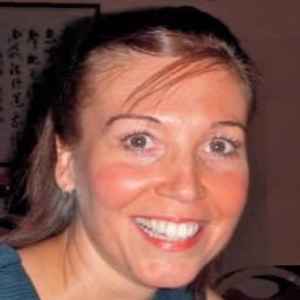
Wednesday Jun 29, 2022
What I wish I knew with Vicky Kendell
Wednesday Jun 29, 2022
Wednesday Jun 29, 2022
Vicky Kendell has done it all in primary education, including being a headteacher. But when she realised that she wasn't loving the job she was doing, she went back to a role that gave her the best of both worlds. She is now an Assistant Headteacher working with the children every day and loving it! Vicky is a person who has the courage of her convictions and she is never afraid to do the right thing, even when it may seem surprising to some people. Her passion for being a teacher comes through loud and clear in this inspiring podcast.
In this episode we discuss ...
- How getting children excited about their learning can feel daunting when you are an inexperienced teacher and you think you won't be able to get them calm again.
- Why it is important to bounce questions back to children when they are capable of answering for themselves if they think hard.
- The importance of developing lessons by following children's interest so the learning is made more meaningful and memorable, but realising this is a difficult skill that comes with experience.
- The value of weaving when managing behaviour so you match the strategy to the child's needs at any particular time.
- Why having a network of supportive professionals is so important.
- How humble it makes you feel when children will do anything to help you and look after you because that's what you do for them.
- Why laughter is so important in class, especially when the children come from challenging backgrounds. In one class Vicky taught the children refused to leave the classroom at the end of the year, so strong was the bond between her and the children.
- The importance of verbalising to children that you really care about them. One way you can show this is by sharing a bit of yourself with them to show you empathise with how they are feeling, because you've been where they are now.
- How singing the Abba song Chiquitita in a guest appearance in a Year 6 musical raised her credibility enormously, even though the boys tried to make her laugh by singing chicken tikka as she performed.
- Being surprised by a parent reaction to a class assembly when developing words to describe the giant in Jack and the beanstalk.
- Making a real difference for all the children in her care, especially the SEN children and their families.
- The importance of asking for help. It is a real strength to seek advice so you can improve your practice; it is never a weakness.
- The pride you feel when a parent says they want you to lead her child's appeal for more SEN support as she trusts you more than anyone else, including the specialist appeals person.
- The joy of being told that you have a wonderful reputation with parents and other professionals because of the way you stick up for the rights of the child and make sure they get the very best education possible.
- Why you must remember to put on your own oxygen mask first! If you collapse through overwork whilst trying to please everyone then you will be no use to anyone. Use the phrase, 'I'm afraid I can't do that right now'.
- The need to balance the tough moments in teaching (because there are some) with the numerous wonderful moments so you keep in perspective the balance of good and not so good.
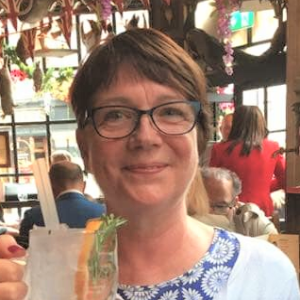
Wednesday Jun 22, 2022
What I wish I knew with Helen Denton
Wednesday Jun 22, 2022
Wednesday Jun 22, 2022
Helen, never planned to work in schools, but her mum said she was bossy and liked organising things so why not be a teacher. Being a good daughter, Helen did what her mum said and became one! And a very good one she is too, because everything she does is for the benefit of the children she teaches. Now many decades after listening to her mum, Helen is sharing her wisdom with us, and, just like her mum, Helen is well worth listening to.
In this episode we discuss ...
- How after some years teaching in a secondary school, Helen took a break from teaching, only to be persuaded back when visiting a Headteacher in a primary school who needed a teacher at short notice to take Year 6 in the summer term.
- Why this class was so challenging and how she made them teachable by focusing on the relationships she had with them.
- The importance of really caring for the children and letting them know you get them as a person.
- How putting a child in a suitcase (yes really!) transformed the way a boy perceived school and his teacher.
- Why being honest with children is so important, but that doesn't mean saying anything that's true. Have an internal question to ask yourself before speaking, such as, 'Would I say that to you if your parents/carers were at the door?' If the answer is no, don't say what you're thinking!
- Why it is OK to speak harshly to children occasionally, as long as you don't damage the relationship you have spent weeks building up.
- Is it a problem if children like you too much?
- How small things can make a massive difference to a child, such as persuading a nervous girl to perform in Bugsy Malone and how this transformed her belief in herself.
- Why tucking in your shirt raises expectations and achievement in the classroom.
- That although teachers have so much to do, there are some things that you can never let go of if you want high standards in your classroom. One thing for Helen was the phrase, 'Before you hand in your work, take a look at it and ask yourself, are you proud of it? If not go away and do it better.'
- Why there are some questions that children ask that you should never answer.
- How Helen and I became senior education professionals, despite being called 'a Jekyll and Hyde character' and 'a juvenile delinquent' by our teachers.
- What to do when children blame you for being unfair.
- Why sharing a bit of yourself with children, such as how you feel as a teacher in the class, can be a very powerful way of shifting children's behaviour.
- The importance of being optimistic if you don't have an immediate impact with children. A Year 4 child has been alive for almost 80,000 hours and in the first half-term of the year you will have taught them for under 200 hours, which is a tiny proportion of their life, so change may hot happen quickly.
- Remember, especially on the bad days: Yes you can do it, and yes they do care.

Thursday Jun 16, 2022
What I wish I knew with Jeremy Crook
Thursday Jun 16, 2022
Thursday Jun 16, 2022
Having been asked many questions by this year's crop of trainee teachers from the Essex Primary SCITT, I decided to make a podcast of me answering some of the questions based on my knowledge and experience of 40 years in primary schools.
I could have made 15 podcasts with the number of questions they asked, but I have selected 5 questions for this podcast and will repeat the Q and A approach in future to answer more of the questions.
So in this podcast I discuss ...
-
Why do some schools still set children by ‘ability’ when all the research shows it does not work?
-
Dual Coding - Why is this so important to children's learning? What style of dual coding is effective for them and you?
-
How can you ensure your TA has the most impact within the classroom?
-
How does building relationships with each child impact on their self-belief, motivation and learning successes?
-
How do you instil a high expectations culture in the classroom?
Huge thanks to all those who asked questions - Helen, Zoe, Lianne, Callum, Jo, Andrew, Faye, Megan, Lara, Lucy, Rowan, Natasha C, Gemma, Jessica, Keri, Rhiannon, Alicia, Natasha R, Marna, Beth.

Wednesday Jun 08, 2022
What I wish I knew with Zoe Knott
Wednesday Jun 08, 2022
Wednesday Jun 08, 2022
Zoe has had a passion for teaching, since she was just 7 years old, and that was because she had a fantastic Year 3 teacher who inspired her and made her love learning. After leaving school, she set off on her own journey to become a teacher, and, though the path has been long and arduous (2 years at college, 6 years at the Open University, 4 years working in school, and all whilst bringing up a toddler), she is finally on the brink of becoming a qualified teacher and taking her very own class for the first time in September.
It's a great story of how you can achieve whatever you want if you really have the passion and determination to succeed.
In this episode we discuss ...
- The passion a teacher has, for any subject, can transfer to the children and make them excited for learning too. And, that passion can encourage children to achieve more than they thought possible.
- The importance of creativity in the classroom to excite children and make them curious.
- The value of working walls as a resource for children to use when they are working independently.
- How working for a CACHE Level 3 taught Zoe so much and enabled her to work in a nursery at the start of her teaching journey.
- The great experience she gained after 4 years working as an LSA. It developed her expertise in many areas, including: working with a child with autism, running catch up programmes, delivering online sessions during the pandemic especially Story time with 60 tech savvy children.
- How the people make teaching great. Training with a great mentor, a great external mentor and being lucky enough to teach amazing children.
- The importance of prioritising, making a list and methodically working through the items (most important first) which means that some jobs never reach the top of the list!
- Why making mistakes is so important for the children and the staff. As a trainee you learn so quickly if you you don't worry about getting things wrong and that is true for the children too.
- Why routines really matter. They structure and guide the work of the day, just don't be afraid to be adaptable if something better for learning comes to mind, so don't feel you have to stick rigidly to the routines every day.
- How reacting positively to children's mistakes and treating them as a learning opportunity will make children unafraid to try new things and this will greatly benefit the progress they can make.
- The nerve-wracking feeling you have when you take over the class for the first time. It's hard because there are so many things to remember, but most important of all is to make sure you are communicating effectively with all the children.
- How having a mentor who actively supports and advises you in the classroom is so helpful and enables you to develop rapidly as a teacher.
- Why having informal discussions with children about their interests and life beyond school really helps build a trusting relationship that really aids their development as learners.
- SPAG - good or bad? It's fascinating watching other people teaching it, especially when they make it active for children and use a range of different tasks to progress the learning. It's challenging when you are teaching it as there is so much to know!
- The importance of telling children things they don't know and then asking them to use and apply their new knowledge, rather than thinking that everything should come from them, which is not an efficient way for children to learn.
- Why there is life beyond Interactive White Boards, because they don't always work, so be prepared!
- The importance of prioritising your work-life balance so when your workload increases it doesn't take over everything. Look after yourself and have some 'me' time, whatever that is for you.

Wednesday Jun 01, 2022
What I wish I knew about science with Danny Nicholson
Wednesday Jun 01, 2022
Wednesday Jun 01, 2022
Danny Nicholson, like many youngsters, wanted to be a vet. But having done a degree in animal biology at Birmingham University, the teaching bug began to bite. Now some 25 years later Danny is an author, Science teacher, ICT Consultant, PGCE lecturer and Computing / Interactive Whiteboard Trainer. He has delivered training courses across the UK, in Europe, and in Canada. He has also been a co-writer of many of the primary science schemes used by schools today and he has created the Reach Out CPD course for Imperial College London. He also writes about science education and regularly blogs his ideas so that everyone can share his expertise. He's happy to share these with you too! (see below)
In this podcast we talk about ...
- Why sharing your ideas, especially the best ones, can help everyone can benefit from your expertise.
- Teaching can sometimes be seen as a back-up career plan but as soon as you find out more about what it entails and get in the classroom that idea quickly goes out of the window, especially when you also like the sound of your own voice!
- What an incredibly varied job teaching is. It is a job that is never boring as there are so many challenges.
- How secondary science teaching can pose quite a few problems, especially when the students are much taller than you!
- What do you do when a student comes in drunk? Get him off to hospital as soon as possible is the best answer.
- Why going down Brighton sewers with a group of students was so interesting, especially when coming up in the middle of the high street.
- How difficult it is for schools keep up with changes in IT - laptops, computer suites, iPads, apps, websites - phew it's complex.
- The excitement of being an internet pioneer in schools. Danny organised a website project with his students when the internet was in its infancy and won a competition. At the awards night, Danny got to meet TV star Jamie Theakston which was really cool.
- How having a real audience for children's work can be very motivating and truly valuable because children then have a purpose for their work.
- The importance of being enthusiastic when teaching science; better still be very enthusiastic. And if you don't feel 100% you've got to blag it so children think you are loving every minute.
- Why you should never be worried about not knowing an answer to a child's science question, because in science there is loads of stuff we don't know, so enjoy finding out as much as you can together.
- Getting children talking is so important as they can share their ideas and develop their thinking about new and novel ideas. The importance of this cannot be overestimated.
- The reason myth busting is such an important thing to do as a science teacher. There is so much false information that is in the public domain through social media, that we must help children to be skilled at seeing through untruths by analysing evidence. Asking children why they think something, then asking them to prove it is a great way to bust myths.
- Science lessons are a great way to provide opportunities for application of learning from other curriculum areas. A cross-curricular approach can be really powerful for this, even when Ofsted come calling.
- Why watching other teachers is an essential way of developing your own practice.
You can connect with Danny on ...
Twitter @dannynic (http://www.twitter.com/dannynic)
And you can find many of Danny's ideas here ...
Danny Nic's Science Fix - Practical Science Ideas and Support
The Whiteboard Blog - Education, Technology and Science CPD and Support
You can also find him on YouTube here
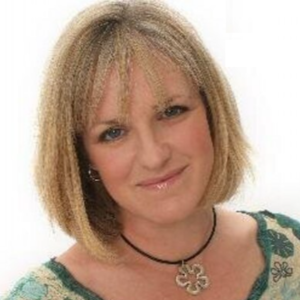
Wednesday May 25, 2022
What I wish I knew with Jo Palmer-Tweed
Wednesday May 25, 2022
Wednesday May 25, 2022
Jo Palmer-Tweed has worked in education for the past 26 years and she has packed so much in during this time. She has been an advanced skills teacher in Drama, a primary headteacher in an improving schools team, an advisor at the Department for Education, the Strategic Lead for the Expert Subject Advisory Groups (which is a group of 300 independent experts across the UK), and on top of all that she is currently the Executive Director of Essex and Thames Primary SCITT. Jo is also a founding fellow of The Chartered College of Teaching and is an advisor for a range of organisations in the UK, including The Teacher Development Trust, The Goodall Foundation and she is a Trustee for The Centre for Studies on Inclusive Education. On top of that, if she can find any spare time that is, she also works as an actor and voice over artist. With a CV like that you can see why Jo has so much of interest to say to anyone who is passionate about teaching.
In this podcast we discuss ...
- Why you need to be subversive to make sure the curriculum is as good as it can be for the children you are teaching.
- The need to accept nothing, question everything and follow your gut. Do what is right for the pupils in your class.
- How acting and teaching complement each other. Both need you to make a human connection with people.
- The fact that the best teachers have something that makes them stand out in the classroom. They have a presence that makes students want to look at them and connect with them.
- Why intuition is such a vital part of teaching.
- The need to have your pupils' best interests at heart and the desire to help them develop into a well-rounded person.
- The fact that there are hoops you have to jump through as a teacher, but there are many you can skirt around so you do what is best for the children in your care.
- Why teaching practice may not be really enjoyable, but if you're with a great teacher you can learn so much from observing what she does to be successful.
- The importance of putting time into lesson preparation. It is worth every second because then you can be really confident in the classroom. Over time you get faster at planning so do the ground work and you will reap the benefit in class.
- Why tricky classes are often the outcome of a teacher not getting the learning climate right for the children they are teaching.
- The value of learning to change what you're teaching if something is not working. It's tricky to do when inexperienced but it is so beneficial that it is a skill well worth learning.
- Why learning the science behind learning and pedagogy is vital. When this is blended with great planning and your own intuition you can achieve great learning outcomes.
- The importance of creativity, even though it is much neglected and underrated. There must be space for things that aren't planned if you are going to excite and motivate children and get the most out of every lesson.
- And there's lots more, including Jo's first nativity production, which was eventful to say the least, and must have been the basis for the film, 'The Nativity'!
You can connect with Jo on ...
Twitter @JPTteach (https://mobile.twitter.com/jptteach)
LinkedIn https://uk.linkedin.com/in/jo-palmer-tweed
